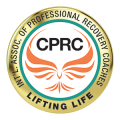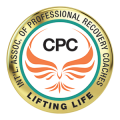When I was a kid, my dad was the one I went to with science questions. Chemistry and physics mostly. And, the infamous “Constellation Closest.”
In fifth grade, my dad helped my super brainy bestie and me build the most amazing science fair project ever. Forget ant farms and volcanoes. Instead, imagine a porta potty-sized structure built from chipboard — four walls, ceiling, door — with shoebox-sized holes cut in the walls and ceiling where we actually inserted shoeboxes that displayed different constellations, each made from a circuit with wires, a battery, and a lightbulb all hidden behind the box top into which we punched holes so when the Constellation Closet visitor pushed the doorbell button beside each shoebox the light would turn on and reveal that box’s constellation. There was a quiz at the end.
Aside from this, what I remember most about my science conversations with my dad is a physics lesson. An object in motion stays in motion and an object at rest stays at rest unless it is acted upon by an equal and opposite force. Or something like that.
It’s Newton’s first law of motion: Inertia.
Inertia is what keeps a body from doing anything except opposing that which tries to alter the magnitude or direction of its speed (whether it’s moving or standing still).
I was thinking about this as I drove the other morning. The cars in front of me were braking and there’s always that decision, right? Do you hit the brakes, too, or do you just take your foot off the gas and see if the force of the atmosphere can slow you enough without having to use the brakes?
For whatever reason, this got me thinking about how when I was drinking — and I know this is true for so many people — I just kept praying something would appear out of nowhere and change my inertia. I believed there was something in the future that could stop me from drinking.
What I didn’t realize is that thing doesn’t exist. And, even if it did, it wouldn’t have been enough. Even if something had stopped me, I still would have needed something else to redirect me.
And, yet, it seems like there’s some sort of inertia in our brains. Right? We know we want to do something differently — make a change in our behavior, habits — and we’re waiting for some future version of ourselves to show up and do it for us.
But, here’s the thing. That future self only exists if we create it from our present self.
And, even if the law of inertia worked on brains, even if that future self showed up as the equal and opposite force that could stop us from moving in the “wrong” direction or start us moving in the “right” direction, there’s a catch. It cannot do both. It cannot stop the movement we don’t want and create the movement we do want. That would have to be two separate forces.
In our brains, it’s not inertia. It’s emotion.
Super simple example. On my walk the other day, about half a mile to go, I spied a huge great blue heron standing in the shallow water. I call this one “the old guy.” He’s bigger than the others and his feathers remind me of a long fluffy beard.
I stopped dead in my tracks — four miles per hour to zero. Pressed pause on my watch but left my earbud in because … Mary Lambert. I gazed, completely mesmerized, at this magnificent creature.
I stopped. My brain stopped me. My thoughts. No tree jumped out in front of me. No cyclist ran into me. My brain stopped my movement. Why? Emotion.
My brain stopped me for a dopamine hit. Something I’ve programmed it to do in the absence of alcohol.
Herons are my favorite. I get chills when I see them, even more so when they let me watch them without getting spooked and flying off. I catch myself smiling. I feel lighter. Peaceful. I am reminded of the magic of the world we’re part of. I will never not stop to lock eyes with a heron. The moment is too precious and too empowering to ignore.
Emotion.
The way we feel. The way we want to feel. Identifying what feels good and connecting with ways to give that to ourselves. That’s how we change.
And, it’s different for everyone. The presence of that heron didn’t stop all the people who passed by. Definitely not the guy who wanted to make sure I had seen the bald eagle.
“I haven’t,” I replied as I gestured toward “the old guy” and told him I am obsessed with herons. He just kept walking, calling back to me about the bald eagle. “But, dude, the heron,” I whispered to myself.
My brain chased a good feeling I have trained it to desire. My brain chose to give me something I have taught it to seek out. To connect with the present in a way that keeps me from wanting to escape it.
Emotions. We can use them to change the brain’s inertia.
How do you want to feel?







Leave a Reply
Want to join the discussion?Feel free to contribute!